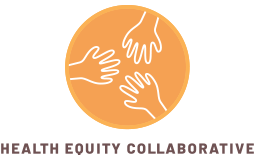26 May Celebrating AAPI Heritage Month with Equitable Access to Mental Health Care
Each May, the United States celebrates the histories and heritage of Asian Americans and Pacific Islanders during AAPI Heritage Month. This year’s theme, “Advancing Leaders Through Collaboration,” provides a perfect opportunity to highlight the inspiring leaders working together to address one of the unique challenges facing the AAPI community: inequities in mental health.[1]
Unfortunately, this challenge only grew during the Covid-19 pandemic. Hate crimes against Asian people living in the United States increased by 77% from 2019 to 2020, according to the FBI.[2]
Whether they’ve experienced discrimination firsthand or read accounts in the news, members of AAPI communities may need support from a mental health professional during this difficult time. According to a November 2021 study in Frontiers in Psychiatry, racial discrimination amid the pandemic significantly boosted the chances of developing depression, anxiety, and several other mental health problems.[3]
That’s particularly concerning, given that AAPI individuals seek mental health help at lower rates than any other racial or ethnic group.[4] In 2019, less than one-quarter of AAPI patients with a mental health condition received treatment.[5] And that was before the pandemic ever reached our shores.
To counter this dreadful trend, we must eliminate barriers to mental health care — like racism, stigma, and cost — and replace them with solutions. Fortunately, leaders within AAPI communities are already working to do so.
For example, Sens. Mazie Hirono (D-HI) and Tammy Duckworth (D-IL) and Rep. Grace Meng (D-NY) led the charge on the Covid-19 Hate Crimes Act, which President Biden signed into law last year.[6] The legislation requires the government to expedite review of hate crimes committed during the pandemic and provides states with grants to support their efforts to prevent such crimes in the future.[7]
Members of the Congressional Asian Pacific American Caucus (CAPAC) held a mental health awareness day earlier this month.[8] And Rep. Barbara Lee (D-CA) — co-chair of the CAPAC Health Care Task Force — recently cosponsored legislation that would bolster school-based mental health services.[9]
Last month, Rep. Lee joined Rep. Robin Kelly (D-IL) to introduce the Health Equity and Accountability Act (HEAA), a bill that would increase the supply of culturally sensitive, multilingual mental health professionals in historically underserved communities.[10] If passed, HEAA will also boost funding for data collection and reporting — a critical step that will help public health officials identify groups most in need of mental health resources.[11]
No initiative or piece of legislation alone will solve the mental health crisis in AAPI communities. But with strong leadership from within AAPI groups and attention from lawmakers on Capitol Hill, we can work together to make historic mental health disparities a thing of the past. This AAPI Heritage Month, the outlook has never been brighter.
[1] https://www.npr.org/2022/05/02/1095812576/aapi-asian-pacific-heritage-month-origin-may-why
[2] https://www.healthaffairs.org/do/10.1377/forefront.20220411.655787/
[3] https://www.frontiersin.org/articles/10.3389/fpsyt.2021.708426/full
[7] https://www.congress.gov/bill/117th-congress/senate-bill/937
[8] https://capac-chu.house.gov/press-release/capac-members-commemorate-aanhpi-mental-health-day
[9] https://gwenmoore.house.gov/news/documentsingle.aspx?DocumentID=4966


